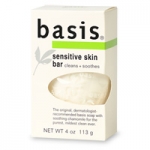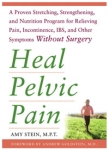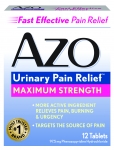You probably know the feeling well. That sharp, bite your lip moment that occurs when you try to urinate after you’ve been catheterized or had a bladder treatment. Though small, the urethra can pack quite a punch when its been irritated or stretched. Yet, it’s the chronic irritation that drives many patients to tears.
Why, oh why, is that urethra so sensitive? For some patients it can relate to a loss of hormones while for others it could be something as simple as a chemical sensitivity to a soap or spermicide. If you suffer from urethral discomfort, you are certainly not alone. This article shares some of the many causes for urethral discomfort and offers tips on how to calm those oh so tender tissues.
Causes of Urethral Pain
Catheterization & Procedures
Each time you are catheterized, undergo a bladder examination or have a bladder treatment, the urethra is mildly traumatized. The end result is pain, often sharp and stabbing, in the urethra during the first few voids afterwards. Ideally, your physician is already using some lidocaine gel and smaller, less traumatic catheters but, even then, urethral discomfort is inevitable and every patient eventually learns how to cope with it. The good news is that this kind of urethral irritation generally improves with each void until, 24 to 48 hours later, it has resolved completely
Bladder Infection
If you’re like most IC patients, you may have spent months or years thinking that your symptoms were the result of a bladder infection rather than IC. A key distinction between the two is the symptom of urethral burning which is very common in UTI’s, less so in IC. If your urethra hurts while you are peeing, test your urine with an AZO Bladder Test strip. If it’s positive, call your urologist and ask for a urine culture so that they can identify the bacteria involved and, most importantly, determine which antibiotic will best kill that specific infection.
Hormones
If urethral discomfort is chronic, women must also consider the overall health and integrity of your skin “down there.” If the vulva or vagina is sensitive and dry, then the urethra may also be the same. Why? Estrogen helps make your mucus membranes thick, moist and resilient. As you lose estrogen, the skin becomes drier and much more sensitive, particularly the bottom half of the urethra. Ask your physician to look at your vulva. If it is showing signs of dryness or thinning, a physician may suggest a topical, preservative free estrogen cream to help strengthen, restore and maintain their skin health.
Infection of the Prostate / Paraurethral / Skene’s Gland
Men and women have glands near the urethra that can become infected and irritated. For men, it’s the prostate gland at the base of the penis. For women, it’s the paraurethral or skene’s gland that are located halfway up the urethra and, you might be surprised to learn, are the female equivalent of the male prostate.
Both the prostate and the paraurethral glands are like sea sponges, very dense tissue with small drainage ducts that can easily become blocked thus allowing bacteria to flourish inside. In men, an infected prostate often swells into the urethra where it can block the flow of urine and make it difficult to urinate. In women, an infected skene’s gland is more like a hard, deep painful pimple that hurts with touch or pressure. Women can often feel an infected gland if they stick their finger (washed, of course) up into the entrance of the vagina.. about an inch or two.. and rub gently along the front side of the vagina. It often has the consistency of a small, firm and painful pea.
If you have an infection of any gland, doctors may need to drain it and/or express the fluid/pus to get it to calm it down. Please talk with your doctor about the various treatment options available.
Chemical irritation
 Never underestimate the role of chemicals in causing urethral discomfort. Some men and women are very sensitive to spermicides or latex condoms while others react badly to something as simple as soap or fabric softener. Chemicals can irritate the skin and our super sensitive nervous system. If you struggle with any skin or urethral sensitivity, you should not be using bath salts or bubble baths. BASIS for Sensitive Skin is a hypoallergenic soap ideal for anyone with sensitivity “down there”. For laundry detergent, try using the very mild baby detergent, DREFT, and always rinse your underwear twice to remove any residual detergent or fragrances. Do not use any extra rinses or fabric softeners. Even the chlorine in swimming pools and hot tubs can provoke urethral irritation. Try different spermicidal products or, perhaps, latex free condoms as well.
Never underestimate the role of chemicals in causing urethral discomfort. Some men and women are very sensitive to spermicides or latex condoms while others react badly to something as simple as soap or fabric softener. Chemicals can irritate the skin and our super sensitive nervous system. If you struggle with any skin or urethral sensitivity, you should not be using bath salts or bubble baths. BASIS for Sensitive Skin is a hypoallergenic soap ideal for anyone with sensitivity “down there”. For laundry detergent, try using the very mild baby detergent, DREFT, and always rinse your underwear twice to remove any residual detergent or fragrances. Do not use any extra rinses or fabric softeners. Even the chlorine in swimming pools and hot tubs can provoke urethral irritation. Try different spermicidal products or, perhaps, latex free condoms as well.
Pads and Pantiliners
Contrary to the ads from feminine hygiene companies, dryness is not the natural state of the skin in the crotch. For women, the surface of the vulva, vagina and bladder is supposed to be moist and covered with mucus which provides essential protection for the more sensitive skin cells beneath. Wearing pantiliners or pads everyday can remove some of this mucus and make your skin more tender. Worse, though, are some of the chemicals used in pads for absorption and odor removal. When these become wet, they can “off gas” chemicals which can irritate your skin. A diehard ALWAYS customer, I cannot wear the new ALWAYS INFINITY pads because they make my vulva burn due, I believe, to these extra chemicals. So, if you don’t need to wear pad, don’t. But if you do, try using chlorine free pads, such as the Seventh Generation or Natracare line of products.
Pelvic Floor Tension
 Consider, as well, the role of muscles in urethral pain. The pelvic floor muscles wrap around the urethra, vagina and rectum as they support the pelvic organs. If you’re tense, these muscles become tight thus making it harder to void, have a bowel movement or enjoy intimacy. Every patient (men and women) should request a pelvic floor assessment to determine if the pelvic floor muscles are contributing to your pain and discomfort, especially if you are having difficulty with intimacy and sexual intercourse. PFD is very treatable using pelvic floor physical therapy. Heal Pelvic Pain (men and women) and Ending Female Pain (women) are two books that can help you understand the role of the pelvic floor in causing pain and discomfort as well as a variety of exercises and stretches to reduce muscle tension.
Consider, as well, the role of muscles in urethral pain. The pelvic floor muscles wrap around the urethra, vagina and rectum as they support the pelvic organs. If you’re tense, these muscles become tight thus making it harder to void, have a bowel movement or enjoy intimacy. Every patient (men and women) should request a pelvic floor assessment to determine if the pelvic floor muscles are contributing to your pain and discomfort, especially if you are having difficulty with intimacy and sexual intercourse. PFD is very treatable using pelvic floor physical therapy. Heal Pelvic Pain (men and women) and Ending Female Pain (women) are two books that can help you understand the role of the pelvic floor in causing pain and discomfort as well as a variety of exercises and stretches to reduce muscle tension.
So what can you do about it?
- Ask your clinician to use a smaller catheter and plenty of lubricant. The “Lo Fric” catheters are a popular favorite in IC clinics performing rescue instillations because they are coated with a slippery substance that helps with insertion and removal.
- Don’t forget the numbing gel. Research studies have proven that catheterization is less painful when using a topical anesthetic in the urethra (i.e. Xylocaine Jelly, Instigel). Some physicians can prescribe a lidocaine jelly for you to use at home afterwards.
- Stay near a restroom for the first several hours after a procedure. Drink water to keep your urine diluted and less irritating to your bladder and urethra. This is a very bad time to drink fruit juices or coffee. Remember, acid on a wound hurts! Your urethra is tender. Don’t traumatize it further.
 If needed, use OTC Azo Bladder Pain Relief Tablets or other pain medication prescribed by your physician. Azo is the OTC version of Pyridium, the medication best known for turning urine orange. It helps by numbing the surface of the bladder and, to a lesser extent, the urethra. Uribel, a newer medication, also has a numbing effect.
If needed, use OTC Azo Bladder Pain Relief Tablets or other pain medication prescribed by your physician. Azo is the OTC version of Pyridium, the medication best known for turning urine orange. It helps by numbing the surface of the bladder and, to a lesser extent, the urethra. Uribel, a newer medication, also has a numbing effect.- Focus on relaxing the pelvic floor muscles. Heating pads, gentle stretches and/or using a vaginal valium suppository can help.
- Trying soaking in a warm bath with some baking soda in the bathwater as soon as you get home from the doctors office. The Great Mothers Sitz Bathes can also quite soothing.
- Rinse yourself off with cool, soothing water during and/or after every void using a simple periwash bottle. This is very calming and soothing to urethra and tissues.
- You might find an aloe gel helpful though, fair warning, the brand is important! Cheap brands contain ingredients and preservatives that can irritate. We suggest trying Desert Harvest Aloe’s Personal Gel.
- Avoid harsh, irritating soaps, cleansers and wipes. BASIS Soap gets rave reviews. If you would prefer a wipe, we suggest the unscented and chlorine free Seventh Generation Baby Wipes or Natracare Intimate Wipes .
If your symptoms are not resolving within a reasonable period of time, please talk with your doctor! The AUA Guidelines for the Diagnosis and Treatment of IC strongly encourage patients to revisit their diagnosis if they are not responding to treatment. It’s time to ask your medical team what else could be contributing to your urethral discomfort!
Catheter Sizing
Ideally, your catheter should be slightly smaller than the size of your urethra. Larger catheters can stretch the urethra yet also allow medication to enter the bladder quickly. Smaller catheters don’t traumatize the tissues as much yet can make procedures last longer because of the time it takes to fill or empty the bladder through a smaller, narrower tube. Patients should talk with their doctors about their catheter options and, most importantly, speak out if a catheter is too large and causing pain.
What’s up with the French sizing? The French catheter scale or “French units” (Fr) is used to measure the outside diameter of a catheter. 1 “French” or “Fr” is equivalent to 0.33 mm = .013″ = 1/77″ of diameter. A 14 to 16 French is used on most adults though IC patients often find a 12 French the most comfortable. Larger catheters are recommended for patients with hematuria or clots to avoid potential blockages and allow larger matter to pass through. Pediatric French sizes range from 3 to 14.



… [Trackback]
[…] Read More here: ic-network.com/got-urethral-pain-common-causes-treatment-strategies/ […]